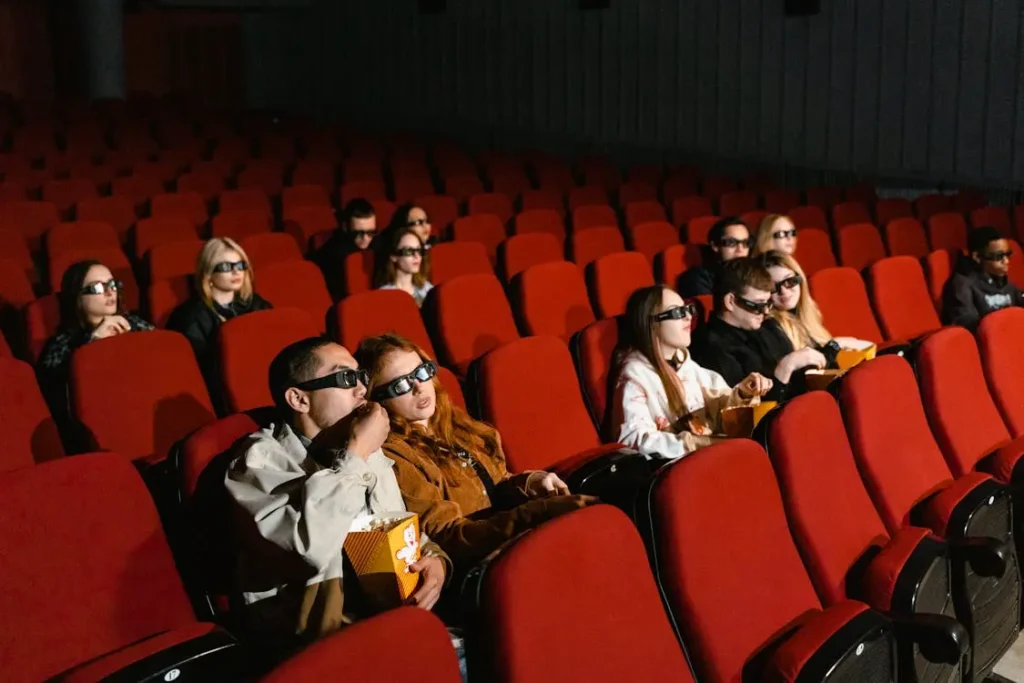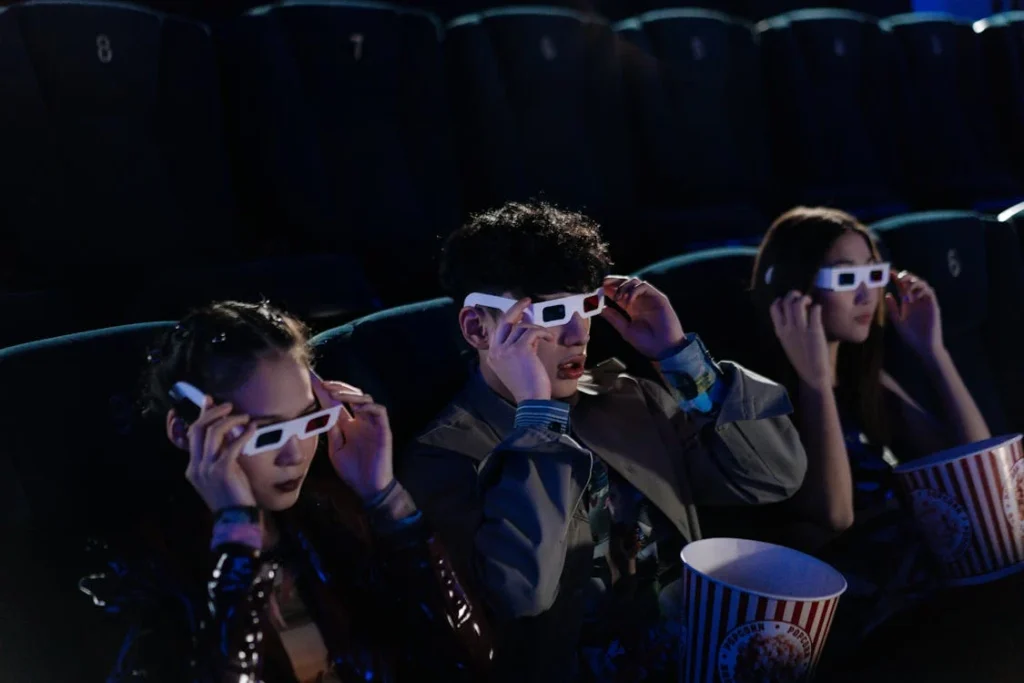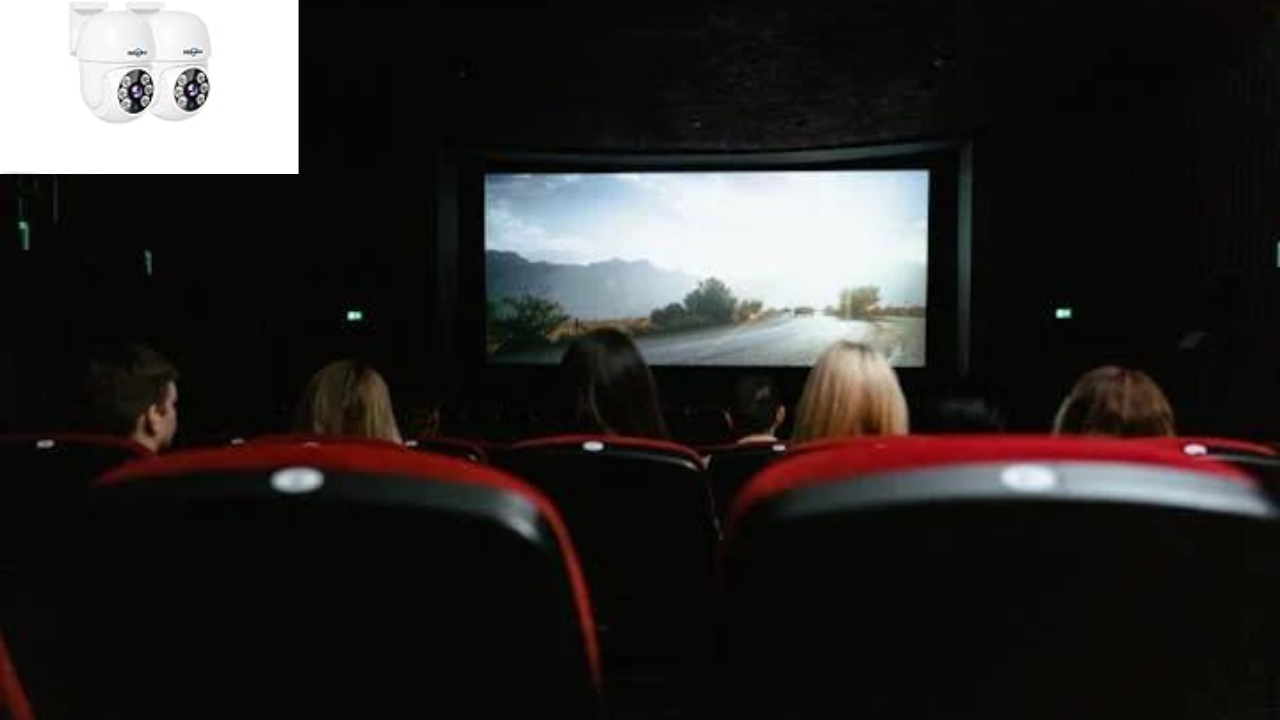Movie theatres have long been a popular destination for entertainment, but have you ever wondered if you’re being watched while watching a movie? Cameras in movie theaters could be watching your every move. The answer might surprise you. While movie theatres don’t typically have cameras installed in the auditoriums, some exceptions and concerns are worth exploring.
The lack of cameras in auditoriums is mainly due to privacy concerns and the desire to create a comfortable viewing experience. Moviegoers want to feel immersed in the film without the distraction of cameras or the feeling of being watched. Additionally, auditorium cameras could disrupt the viewing experience and distract from the movie itself.
Some movie theaters may have signs indicating that filming or photography is not allowed, which can help alleviate concerns about cameras in the auditorium. However, moviegoers must still be aware of their surroundings and report any suspicious activity to theater staff.
Security Measures in Theaters
Some movie theaters may have security cameras in public areas, such as lobbies, concession stands, and hallways. These cameras are usually intended to deter criminal activity, investigate incidents, and monitor crowd control. However, these cameras are generally directed at something other than the screens or seating areas.

Security cameras in public areas are generally accepted as necessary to ensure public safety. However, some moviegoers may feel uneasy about being recorded, even if it’s not in the auditorium. Theater staff are trained to monitor these cameras and respond to potential security threats.
Security cameras in public areas can also help to deter theft and vandalism, creating a safer environment for moviegoers. By being aware of their surroundings and reporting any suspicious activity, moviegoers can help to ensure a safe and enjoyable experience for everyone.
Facial Recognition Technology in Movie Theaters
Some theaters might use facial recognition technology for audience analysis or demographic research. However, this is rare and often requires explicit consent from moviegoers. Facial recognition technology can be controversial, raising concerns about data privacy and surveillance.
If a movie theater uses facial recognition technology, they must inform patrons and obtain their consent. Moviegoers have the right to opt out of such data collection, and theaters must ensure that any collected data is stored securely and complies with privacy regulations.
Facial recognition technology can also be used for security purposes, such as identifying potential security threats. However, this use of the technology is typically limited to specific contexts, such as high-security events or areas with high crime rates.
Infrared Cameras in Movie Theaters
Infrared cameras are sometimes used in movie theaters to analyze audiences or monitor crowd control. These cameras use heat sensors to detect movement and can be used to track audience engagement or demographics. However, infrared cameras are less common than other security measures and are often used in specific contexts, such as market research.

Infrared cameras are generally considered less intrusive than visible light cameras, as they do not capture identifiable images. However, some moviegoers may still be concerned about collecting their biometric data, even if it’s anonymous.
Infrared cameras can also monitor theatre capacity and crowd control, helping to ensure a safe and comfortable viewing experience. By using infrared cameras, theaters can optimize seating arrangements and improve the viewing experience.
Data Collection in Cinemas
Movie theaters may collect data from moviegoers through various means, including online ticket sales, loyalty programs, and surveys. This data can be used for marketing, audience analysis, or to improve the viewing experience. However, moviegoers can control their data and opt out of data collection.
Movie theaters must ensure that collected data is stored securely and complies with privacy regulations. They must also be transparent about their data collection practices and provide clear opt-out options for moviegoers.
Data collection in cinemas can also improve the viewing experience by providing personalized recommendations and special offers. By opting into data collection, moviegoers can receive tailored promotions and enhance their overall cinematic experience.
Privacy Policies in Movie Theaters
Movie theaters are responsible for protecting patrons’ privacy. They must have clear privacy policies that inform moviegoers about data collection practices, security measures, and their rights regarding their personal information.

Moviegoers should be aware of the privacy policies at their local movie theater and feel comfortable asking questions or opting out of data collection. By being informed and vigilant, moviegoers can enjoy their cinematic experience while maintaining privacy.
Privacy policies in movie theaters must also comply with relevant laws and regulations, such as the General Data Protection Regulation (GDPR) in the European Union. By adhering to these standards, movie theaters can ensure the privacy and security of their patrons’ personal information.
New Heading: AI-Powered Surveillance in Movie Theaters
Some movie theaters are exploring using AI-powered surveillance systems to enhance security and improve the viewing experience. These systems use machine learning algorithms to analyze footage from security cameras and detect potential security threats.
AI-powered surveillance systems can help to identify suspicious behavior and alert theater staff to potential security risks. They can also be used to monitor crowd control and optimize theater operations.
However, using AI-powered surveillance systems in movie theaters also raises privacy concerns. Moviegoers may be uncomfortable with being monitored by AI-powered cameras, and there are concerns about how the data collected by these systems will be used and stored.
Conclusion: Your Privacy in the Cinema
While cameras in movie theaters are not widespread, it’s essential to be aware of the potential for surveillance in public spaces. By understanding the security measures and data collection practices in place, moviegoers can make informed choices about their privacy and enjoy their cinematic experience with peace of mind.
Always be aware of your surroundings and report any suspicious activity to theater staff. If you have concerns about data collection or privacy, don’t hesitate to contact the theater management or seek more information.
By being informed and vigilant, you can help to ensure a safe and enjoyable experience for everyone at the movies.
FAQs
Are there cameras in movie theaters?
Some movie theaters have security cameras in public areas like lobbies and concession stands, but only sometimes in auditoriums.
Why do movie theaters have security cameras?
Security cameras in movie theaters deter criminal activity, investigate incidents, and monitor crowd control.
Do movie theaters use facial recognition technology?
Some movie theaters may use facial recognition technology for audience analysis or demographic research, but this is rare and often requires explicit consent.
How do movie theaters protect my privacy?
Movie theaters have privacy policies to protect your personal information and ensure that any collected data is stored securely and complies with privacy regulations.
Can I opt out of data collection in movie theaters?
Yes, you can opt out of data collection in movie theaters by informing theater staff or management, and they must respect your decision and ensure that your data is not collected or stored.
